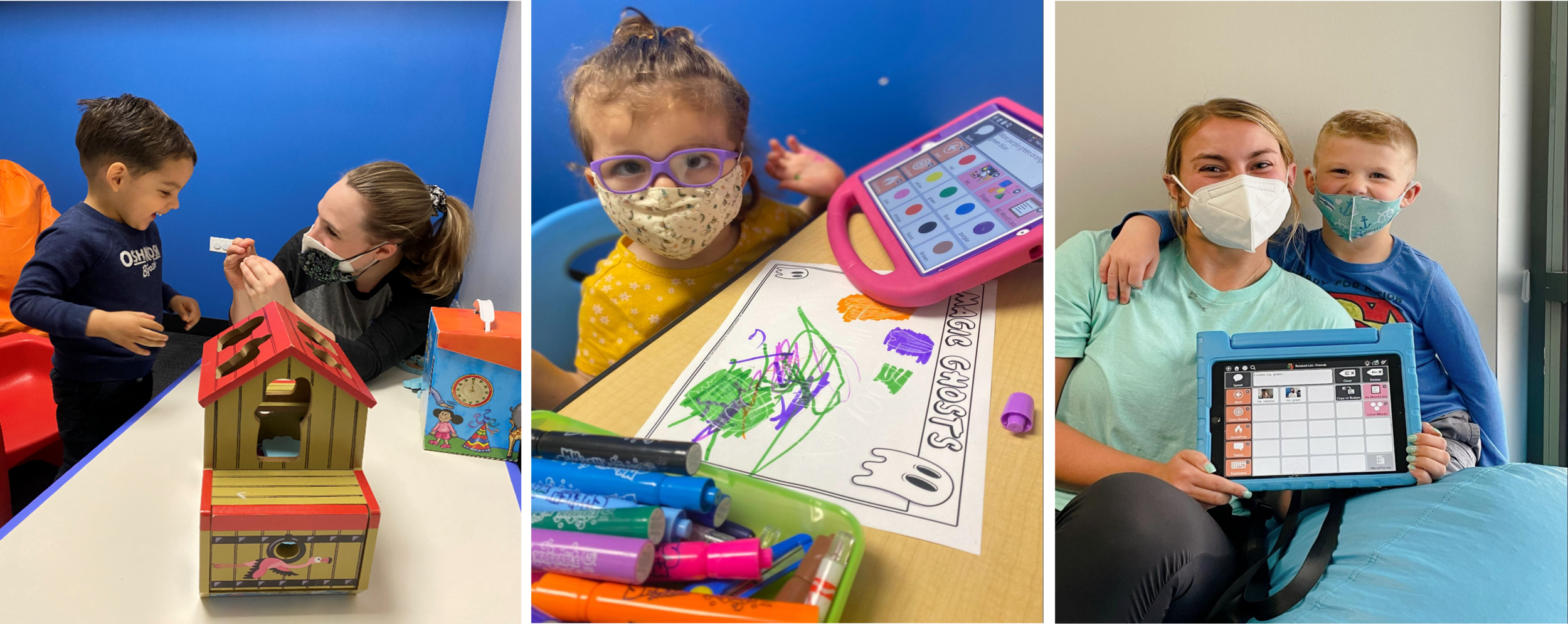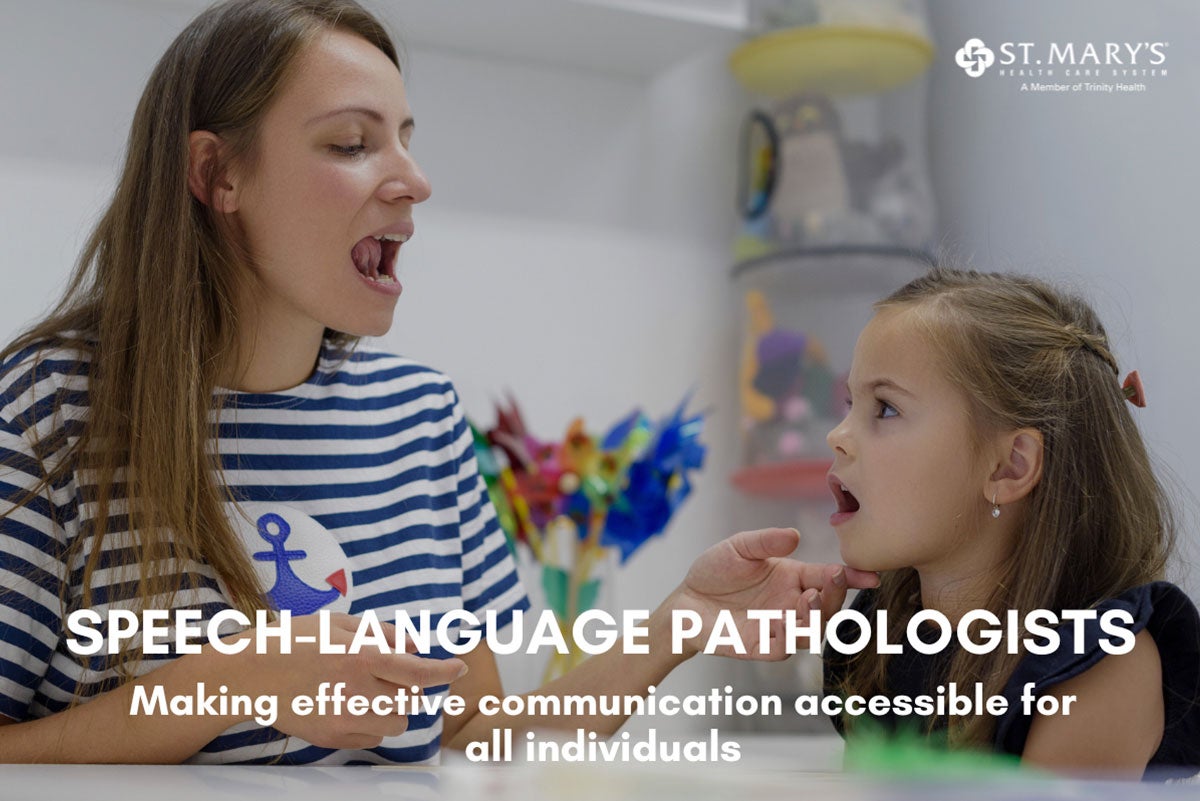Just How a Speech Pathologist Can Aid Improve Interaction Abilities
Efficient communication is a foundation of personal and professional success, yet many people encounter difficulties that impede their capability to express themselves clearly. A speech pathologist is equipped to address these obstacles via targeted evaluation and intervention strategies customized to every individual's requirements. By utilizing evidence-based therapeutic methods, they not just function to enhance speech and language disorders yet additionally improve overall communicative competence. Recognizing the complex function of a speech pathologist reveals just how their expertise can change lives, inviting a closer exam of the certain approaches and results related to their technique.
Understanding Interaction Disorders
Recognizing communication conditions is important for identifying how they affect people' ability to share themselves and engage with others. Communication problems encompass a large range of problems that influence speech, language, and social interaction, typically preventing effective interaction. These problems can arise from different variables, including neurological conditions, developing hold-ups, physical impairments, or psychological problems.
Speech problems might manifest as problems in expression, voice, or fluency manufacturing, influencing just how words are pronounced or spoken. Language disorders, on the other hand, include obstacles in understanding or making use of language, which can impede both verbal and non-verbal communication. Social communication conditions are defined by troubles in the practical facets of communication, such as taking turns in conversation or understanding social cues.
The repercussions of communication conditions are profound, affecting not only the individual's capability to communicate emotions and thoughts however additionally their social partnerships, instructional opportunities, and general lifestyle. Understanding of these conditions can promote empathy and support, encouraging effective approaches for interaction and involvement. Recognizing the intricacies of interaction conditions is a critical step in the direction of promoting inclusivity and resolving the demands of those influenced.
Duty of a Speech Pathologist
Speech pathologists often play a vital role in treating and identifying interaction disorders, employing a series of evidence-based techniques customized to every individual's needs. These specialists collaborate with individuals throughout the life expectancy, from kids with speech delays to grownups recovering from strokes or traumatic mind injuries. Their expertise incorporates a range of interaction problems, including expression, language, voice, and fluency conditions.
In therapeutic setups, speech pathologists utilize organized interventions created to enhance interaction skills. They might implement approaches such as speech exercises, language video games, and social communication training to assist in improvements in responsive and meaningful language capabilities. Speech Pathologist. In addition, they educate customers and their families regarding reliable communication methods and adaptive techniques to browse everyday interactions
Beyond straight therapy, speech pathologists work together with various other healthcare teachers, specialists, and caregivers to make sure a thorough method to treatment. They promote for customers by providing resources and support, allowing people to attain their interaction objectives and improve their overall high quality of life. As professionals in the area, speech pathologists are essential in fostering efficient communication, promoting self-reliance, and improving social engagement for those with interaction obstacles.
Analysis and Medical Diagnosis Refine
The analysis and medical diagnosis procedure performed by speech pathologists commonly entails a thorough evaluation to identify interaction problems properly. This procedure starts with a thorough instance background, where the medical professional collects significant details about the person's clinical, instructional, and developing history. Comprehending the context of the individual's communication difficulties is important for an exact medical diagnosis.
Complying with the case history, speech pathologists utilize casual analyses and standard tests to evaluate numerous elements of communication, consisting of speech noise production, language understanding, meaningful language, and social interaction skills. These evaluations are tailored to the person's age and certain issues, giving useful data for evaluation.
Monitoring is also a crucial part of the evaluation procedure, as it enables the clinician to see firsthand how the private communicates in all-natural settings. Furthermore, interviews with member of the family and instructors can provide understanding into the individual's interaction difficulties throughout different settings.
Once the examination is complete, the speech pathologist manufactures the searchings for to identify a medical diagnosis and recommend proper interventions. This complete assessment process makes certain that individuals get targeted assistance tailored to their distinct interaction needs, laying the foundation for reliable healing techniques.
Restorative Strategies and Techniques
Many healing techniques and techniques are utilized by speech pathologists to resolve a variety of communication conditions successfully. One extensively utilized method is articulation treatment, which concentrates on dealing with speech sounds through repeating and visual hints. This strategy is specifically advantageous for individuals with speech sound conditions.
An additional reliable approach is language intervention, which enhances both receptive and expressive language skills. This may involve interactive activities that promote link vocabulary development, sentence structure understanding, and conversational skills. Furthermore, speech pathologists typically utilize social abilities training to enhance practical language capacities, making it possible for people to browse social communications more successfully.
Fluency shaping and stuttering modification techniques are specifically designed to aid those experiencing fluency problems. These strategies aid customers establish smoother speech patterns and handle the emotional and physical components of stuttering.
Furthermore, alternative and augmentative interaction (AAC) systems are employed for individuals with extreme interaction problems. These systems, which can consist of gestures, symbols, or digital gadgets, offer important support for reliable communication.
Benefits of Speech Treatment

Additionally, speech treatment can help in establishing important listening and comprehension abilities, promoting much better interaction in discussions. People with cognitive-communication disorders can additionally profit, as therapy focuses on reinforcing memory and analytical capabilities, important for read what he said reliable interaction.
Another critical facet is the psychological support given during therapy sessions. Speech pathologists develop a safe setting, motivating individuals to overcome anxiousness and stress pertaining to their communication problems. This support can bring about enhanced self-confidence and total psychological well-being.
In addition, early treatment through speech treatment can prevent further problems, guaranteeing that people reach their full communicative potential. Generally, the benefits of speech therapy expand beyond simple speech improvement, positively influencing various measurements of life for those influenced by communication problems.
Verdict
In summary, speech pathologists play a critical role in attending to interaction disorders with analysis, diagnosis, and tailored restorative treatments. By employing evidence-based techniques, these experts boost individuals' speech and language capabilities, promoting boosted Speech Pathologist quality, fluency, and social interaction skills. The benefits of very early treatment emphasize the importance of seeking help from speech pathologists, as their proficiency can substantially boost communicative possibility, ultimately resulting in higher success in both personal and expert rounds.

Speech pathologists often play an essential role in treating and identifying interaction conditions, utilizing an array of evidence-based strategies customized to each person's demands. As experts in the area, speech pathologists are necessary in promoting efficient interaction, advertising self-reliance, and boosting social participation for those with communication difficulties.
